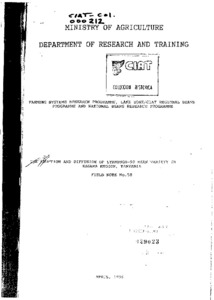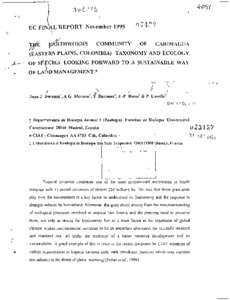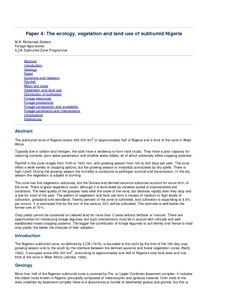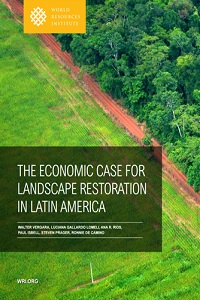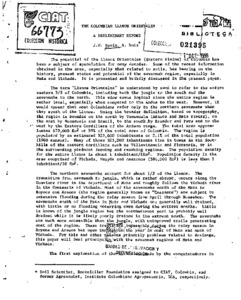land use
AGROVOC URI: http://aims.fao.org/aos/agrovoc/c_4182
Technical implications of land monitoring projects using remote sensing data in Central America for natural resource management
The earthworms community of Carimagua (Eastern plains, Colombia) : taxonomy and ecology of species. Looking forward to a sustainable way of land management?
Tropical savannas constitute one of the most predominant ecosystems in South America with an overall extension of almost 250 millions ha. The role that these grasslands play over the environment is a key factor to understand its functioning and the response to changes induced by humankind.
The evolution of swidden fallow secondary forests in Asia
Swidden agriculture in tropical Asia is a diverse practice, making it difficult to draw general conclusions on trends of the development of swidden fallow secondary forests (SFSF). There is, however, sufficient evidence to recognise trends of a gradual intensification often through the incorporation of extensive tree crop production in SFSF, or a direct conversion to intensive tree cash cropping. Factors contributing to the changes include emerging markets for cash crops or timber and pulp wood production, government policies and development projects, fire, and population pressures.
The ecology, vegetation and land use of subhumid Nigeria
Describes the geology, relief, climate, major soil types, vegetation zones and land use patterns of the subhumid zone of Nigeria. Presents results of studies on natural forage productivity & composition and forage production constraints.
The forest margins and savannas of Latin America : a unique opportunity for contributing to natural resource management
The Economic Case for Landscape Restoration in Latin America
Degraded lands—lands that have lost some degree of their natural productivity through human activity—account for over 20 percent of forest and agricultural lands in Latin America and the Caribbean. Some 300 million hectares of the region’s forests are considered degraded, and about 350 million hectares are now classified as deforested. The agriculture and forestry sectors are growing and exerting great pressure on natural areas. With the region expected to play an increasingly important role in global food security, this pressure will continue to ratchet up.

